Midsona has chosen to connect the sustainability work to the UN Global sustainable development goals. The goals cover a large number of issues and we have analyzed and mapped the way in which Midsona best contributes to Agenda 2030.
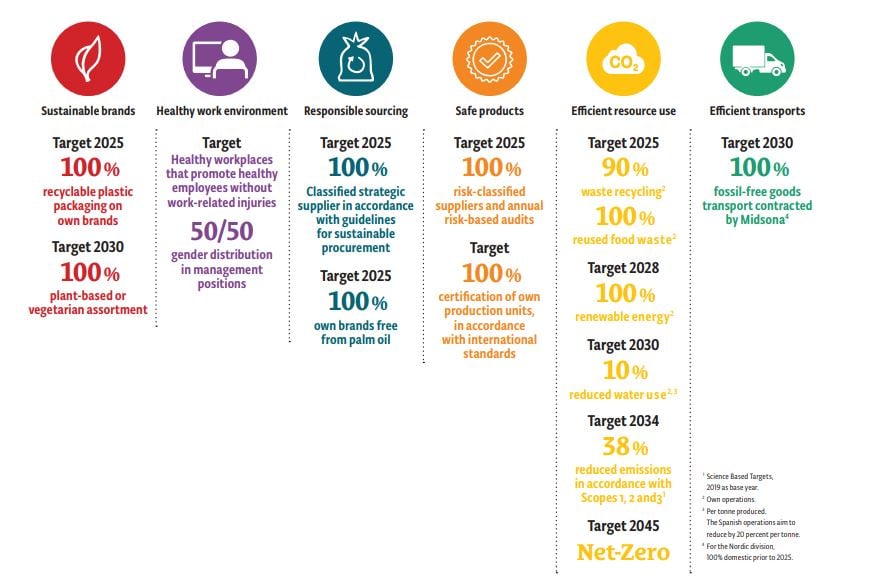
Midsona has chosen to connect the sustainability work to the UN Global sustainable development goals. The goals cover a large number of issues and we have analyzed and mapped the way in which Midsona best contributes to Agenda 2030.

We are constantly getting new values and consumers with a different view of food, consumers who want to make healthy and sustainable choices. Midsona also wants to be part of the solution in the future by having a clear focus on plant-based and organic products. Our goal is that by 2030, 100 percent of Midsona's products will be plant-based or vegetarian.
Midsona strives to generate the least possible use of resources and cause the least possible amount of waste. Midsona has committed to the Plastics Initiative 2022 in Sweden and will apply this goal to other parts of the Group from 2020. The ambition is that all Midsona's consumer packaging can be recycled in 2025 and that we thus contribute to the EU strategy for circular economy.
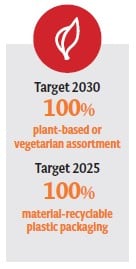
Midsona has a relatively equal gender distribution with 47 percent women and 53 percent men in total in the Group. Midsona actively works to improve the gender distribution in the working groups and in leading positions.
Midsona's obvious goal is for all employees to feel good in their workplaces, regardless where it is located. This is achieved through prioritized work environment work with commitment from management as well as employees. For work-related injuries, Midsona has a zero vision.
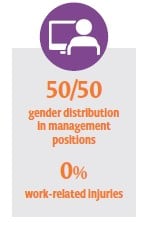
Midsona risk assesses new and existing suppliers of food according to a number of different parameters, including Health and safety, Environmental impact, Business-ethics and anti-corruption, Human rights and Certification.
Midsona's target is 100 % mapped strategic suppliers according to ISO 20400 guideline.
A new supplier evaluation system (KODIAK) was implemented during 2019 for a uniform and improved overview of suppliers' strengths, competence and capacity. By 2025, all of Midsona’s own brand products are to be 100-percent free from palm oil
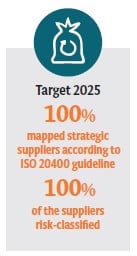
Documentation over what is included in our products and how they are produced is a significant part of Midsona's quality work. We have a large product portfolio and to be able to guarantee safe, sustainable products, a risk analysis is required of all our processes and a detailed product evaluation. Midsona's target for 2025 is to perform 100 % annual risk audits.
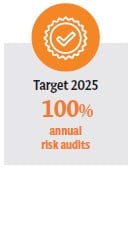
New production methods, energy savings, even better waste control and support materials for production are areas that Midsona has identified as important.
The amount of waste and spoilage must be minimised through alternative materials that can be recycled in part or whole. The amount of support materials for production must be reduced. Our target is to recycle 90 % of our waste by 2025.
Midsona's organic waste is for example used as biofuels for cars and buses, for external biofuel facilities and for compost facilities and as animal food. The ambition is to increase focus on and control of food waste, to thereby be able to reduce unnecessary food waste and increase re-use of the unavoidable food waste. By 2025, Midsona hopes to re-use 100 % of the food waste.
By 2028, Midsona’s own operations are to be supplied with 100 percent renewable energy.
By 2030, Midsona shall have reduced its fresh water use by 10 percent per tonne produced. The Spanish operations aim to reduce their use by 20 percent per tonne.
In 2034, in line with mapping based on the Science Based Targets initiative, Midsona shall have reduced its emissions in accordance with Scopes 1, 2 and 3 by 38 percent. The target from 2020 of 100 percent mapping of greenhouse gas emissions in accordance with the GHG (Green House Gas protocol) and to have our targets approved by SBTi (Science Based Targets Initiative)
has been met.
Midsona shall achieve net-zero in emissions by 2045.
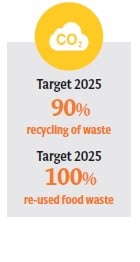
Midsona works continuously and goal-oriented to try to minimise emissions from transports and has created a model for efficiency enhancements and route optimisation of the group's goods flows.
In Sweden, we already joined the DLF's Transport Initiative 2025 and in the period 2020-2030 will let this target also apply to other parts of the Midsona Group.
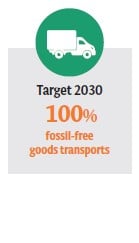
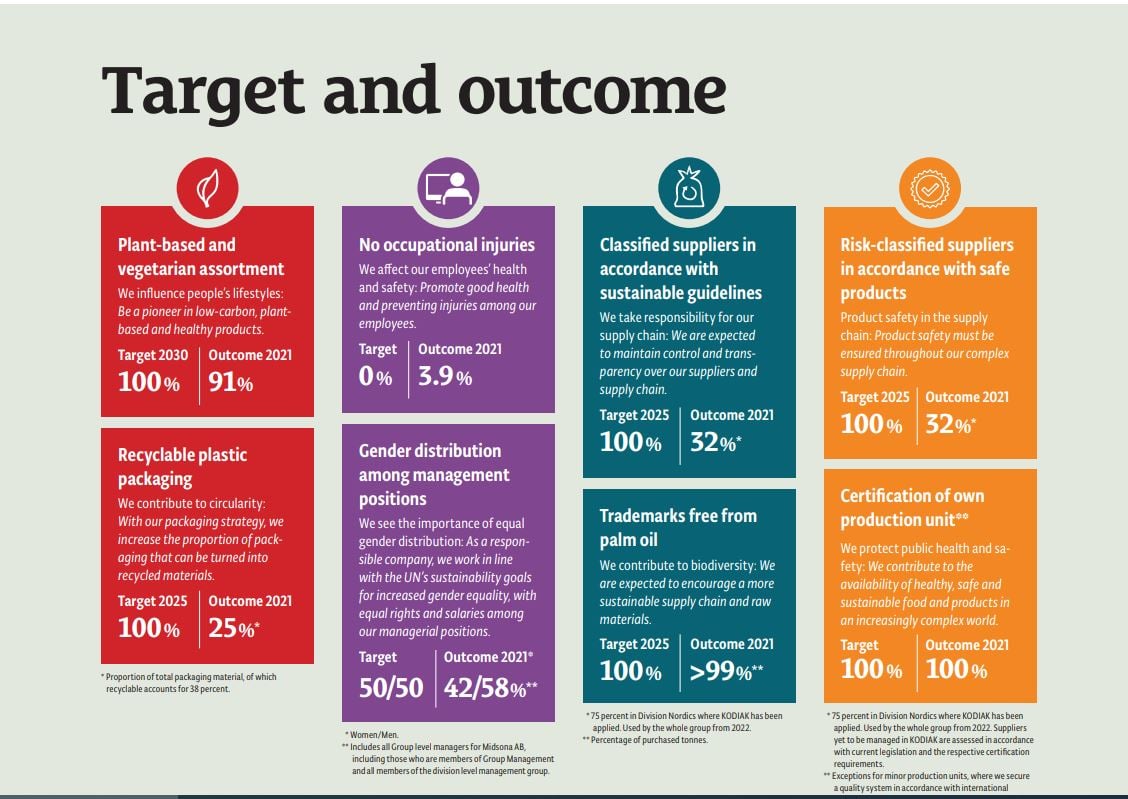
Midsona’s sustainability targets are a result of our work to identify and analyse our material areas, with the highest risks in mind, and all have been valued in the short, medium and long term (>10 years). An important basis for this work was our stakeholders’ expectations and perspectives, which helped update our strategy with new realistic, measurable and time-limited fixed targets. The targets have made it easier for us to measure our progress and it facilitates the management of our greatest and most material sustainability risks and opportunities.
In 2021, we initiated measures in the areas of palm oil, water and product safety certification. We have also worked to achieve a complete survey of energy use within the Group and, as a result of this, we have chosen to add a special target linked to energy, with the ambition of reducing our energy consumption and having 100 percent renewable energy before 2028.